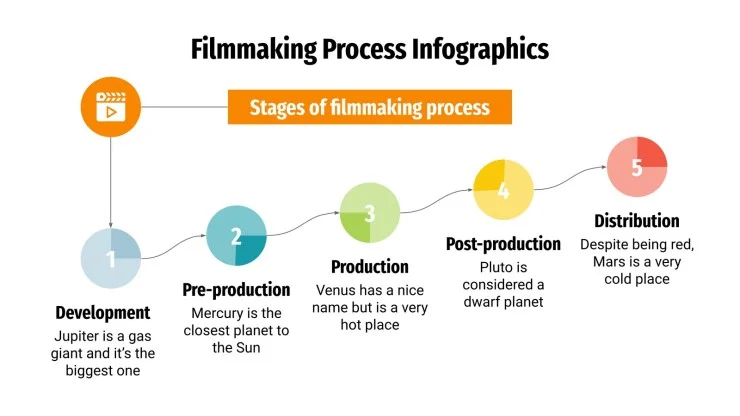Who is a Film Production Manager | Roles, Scopes, Salary?
Beyond the glitz and glamour of actors and directors, a hidden force keeps film and TV productions running smoothly: the production manager. They’re the masters of behind-the-scenes operations, juggling budgets, schedules, and teams to ensure everything comes together seamlessly. They’re more than just glorified assistants; their expertise is crucial from planning to post-production, making them an indispensable part of the filmmaking magic. This blog serves as your guide to exploring who production managers are, their responsibilities, how to become one, the scope of work, and even their salary.
Who is a Film Production Manager?
While actors and directors bask in the spotlight, a crucial figure quietly orchestrates the magic behind the scenes: the production manager. Don’t be fooled by the unassuming title – this role demands a blend of leadership, communication, and problem-solving skills that keep the entire production running smoothly.
Read Also: List of Best Screenwriting Software in 2024
Imagine a film as a journey from point A to B, pre-production to post. Production managers are the navigators, responsible for everything from budgeting and scheduling to keeping the crew happy and productive. They wear many hats, overseeing logistics, managing finances, and ensuring every element aligns with the creative vision.
Do you want free career counseling?
Ignite Your Ambitions- Seize the Opportunity for a Free Career Counseling Session.
- 30+ Years in Education
- 250+ Faculties
- 30K+ Alumni Network
- 10th in World Ranking
- 1000+ Celebrity
- 120+ Countries Students Enrolled
Whether it’s a sprawling blockbuster or a documentary project, production managers are the glue that holds everything together. They work closely with producers, directors, and countless other departments, ensuring the journey from A to B is completed efficiently and within budget. So next time you’re engrossed in a film, remember the invisible hand guiding its success is the production manager who is the silent orchestrator of the on-screen magic.
Production Manager Responsibilities
The magic of film doesn’t happen by chance. Each film production stage, from pre-production to post-production, requires meticulous planning and execution, and the production manager sits at the helm of this intricate process. Let’s delve deeper into their responsibilities, categorized by pre-production and post-production phases:
Read Also: Lights, Camera, AI: How AI is Transforming Filmmaking
Book Now →

1. Pre-Production Phase
Budget & Resources:
- Develop a detailed budget based on script breakdown and industry standards.
- Allocate resources (crew, equipment, locations) to maximize efficiency.
- Monitor and adjust budget as needed, keeping key stakeholders informed.
- Secure funding and negotiate contracts with vendors.
Scheduling & Logistics:
- Break down the script into a workable shooting schedule.
- Coordinate with cast and crew availability to avoid conflicts.
- Scout and secure filming locations, obtaining necessary permits.
- Organize transportation and housing for cast and crew.
Crew & Talent:
Do you want free career counseling?
Ignite Your Ambitions- Seize the Opportunity for a Free Career Counseling Session.- Recruit and hire qualified crew members (camera operators, sound technicians, etc.).
- Manage crew contracts, payroll, and overtime approvals.
- Collaborate with casting directors to find suitable actors.
- Negotiate contracts and manage talent logistics (travel, accommodations).
Preparation & Documentation:
- Develop production plans and storyboards for each scene.
- Obtain necessary props, costumes, and set dressings.
- Arrange insurance coverage for equipment, cast, and crew.
- Maintain detailed production documentation for future reference.
2. Post-Production Phase:
Delivery & Management:
- Oversee the editing process, ensuring adherence to creative vision and budget.
- Manage post-production vendors (color grading, sound mixing, VFX).
- Deliver final product to distributors or broadcasters on time and within specifications.
- Archive production materials for future use or legal requirements.
Wrap-Up & Reconciliation:
- Finalize crew payroll and ensure all contractual obligations are met.
- Return rented equipment and settle outstanding vendor invoices.
- Conduct post-production wrap meetings to assess performance and identify areas for improvement.
- Prepare final budget reports and documentation for producers.
Marketing & Distribution:
- Collaborate with marketing teams to develop promotional materials.
- Assist with securing distribution deals and festival submissions.
- Manage publicity campaigns and media outreach.
- Track and analyze audience response and performance metrics.
Evaluation & Learning:
- Analyze production data to identify cost-saving opportunities.
- Reflect on successes and challenges to improve future projects.
- Share lessons learned with colleagues and contribute to industry knowledge.

Read Also: A Beginner’s Guide to Post-Production for Filmmakers
How to Become a Production Manager?
Dreaming of a career behind the scenes, coordinating the chaos, and ensuring smooth sailing on film and TV sets? Production manager might be the perfect role for you! Here’s your step-by-step guide to navigating the path in India:
Step 1. Education & Skills:
- While not mandatory, a bachelor’s degree in film production, business, media studies, or related fields provides a strong foundation. Consider universities like FTII (Pune), Whistling Woods (Mumbai), IIMC (Delhi) for specialized programs, or AAFT University of Media & Arts (Raipur).
- Develop skills in budgeting, scheduling, contract management, film production software, and health & safety regulations. Communication, leadership, and problem-solving are equally crucial.
- Familiarity with tools like Movie Magic Budgeting, Celtx, and Shotgun Production Management software is advantageous.
Step 2. Gaining Experience:
- Start by building experience in production departments. Look for positions like runner, production assistant, location manager, or production coordinator. Internships are great starting points.
- Consider roles in related fields like event management, operations, or logistics to hone your organizational and management skills.
- Actively network with professionals in the industry. Attend film festivals, workshops, and industry events to build connections and gain insights.
Step 3. Building Your Portfolio:
- Work on independent projects, student films, or volunteer opportunities to showcase your management and problem-solving skills.
- Create a portfolio website or document your experiences and accomplishments in film production.
Read Also: Method vs. Meisner: Find Your Perfect Acting Technique
Step 4. Job Search & Applications:
- Research production companies, studios, and independent filmmakers actively hiring production managers.
- Highlight relevant skills and experiences, emphasizing projects aligned with the company’s work.
- Be ready to discuss your skills, knowledge, and passion for film production.
Step 5. Additional Tips:
- Keep yourself informed about industry trends, technologies, and regulations.
- While not mandatory, certifications in film production management can enhance your profile.
- The journey to becoming a production manager requires dedication and perseverance.
Scope of Film Production Management
The Indian film industry, teeming with regional diversity and international aspirations, opens a treasure trove of opportunities for aspiring production managers. From the lavish Bollywood spectacles to the poignant narratives of independent productions, this arena offers diverse career paths brimming with both challenge and creative satisfaction.
As a production manager, you’ll orchestrate the intricate choreography of filmmaking, expertly navigating budgeting, scheduling, logistics, and personnel throughout pre-production, filming, and post-production. Your expertise ensures smooth operations, and cost-effectiveness, and ultimately, the director’s vision takes flight. Specialization awaits, allowing you to delve into location scouting, where hidden gems become captivating backdrops, or production coordination, where meticulous budget management and regulations reign supreme. Strong leadership, communication, and problem-solving are your essential tools to create a niche in the vibrant canvas of storytelling and filmmaking.
Read Also: A Lesson on the Cameo Effect from: 9 Iconic Bollywood Cameos
Production Manager Salary in 2024
Aspiring production managers in India can expect an average salary of ₹700,000 per year, translating to roughly ₹280 per hour. While entry-level roles typically start around ₹499,708, experienced professionals can command salaries as high as ₹1,345,000 annually. Remember, these are averages, and your specific salary can vary depending on your experience, skills, location, and the type of productions you work on.
Conclusion
The world of film and television production is a thrilling one, and the role of a production manager plays a crucial part in bringing stories to life. This blog has hopefully shed light on the responsibilities, scope, and potential career path of a production manager in India. Remember, the journey demands dedication, passion, and a relentless pursuit of knowledge.

AAFT has been providing the world with limitless creativity and expression since 1993! Through a dynamic and industry-driven curriculum, AAFT provides engaging and captivating articles to persuasive blogs and empowers its readers to explore diverse avenues of creative media education-related content.








